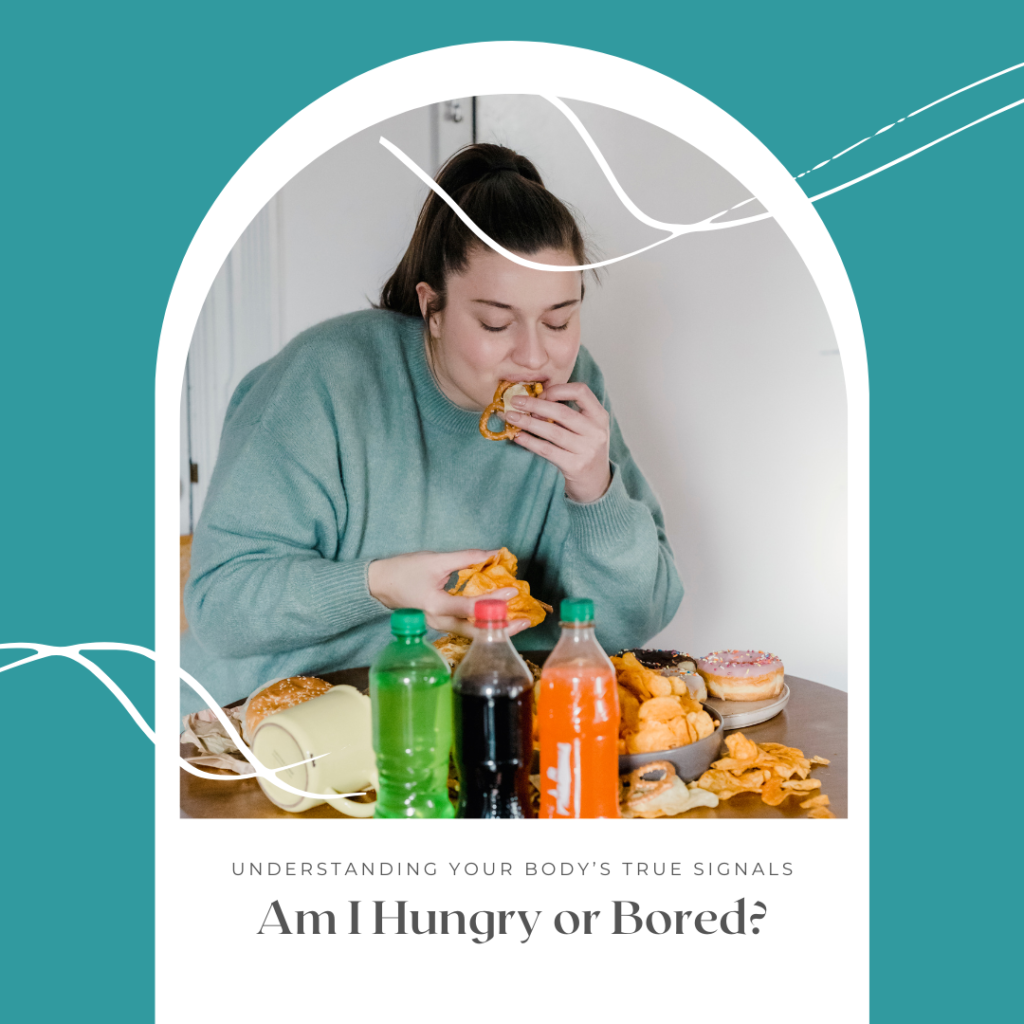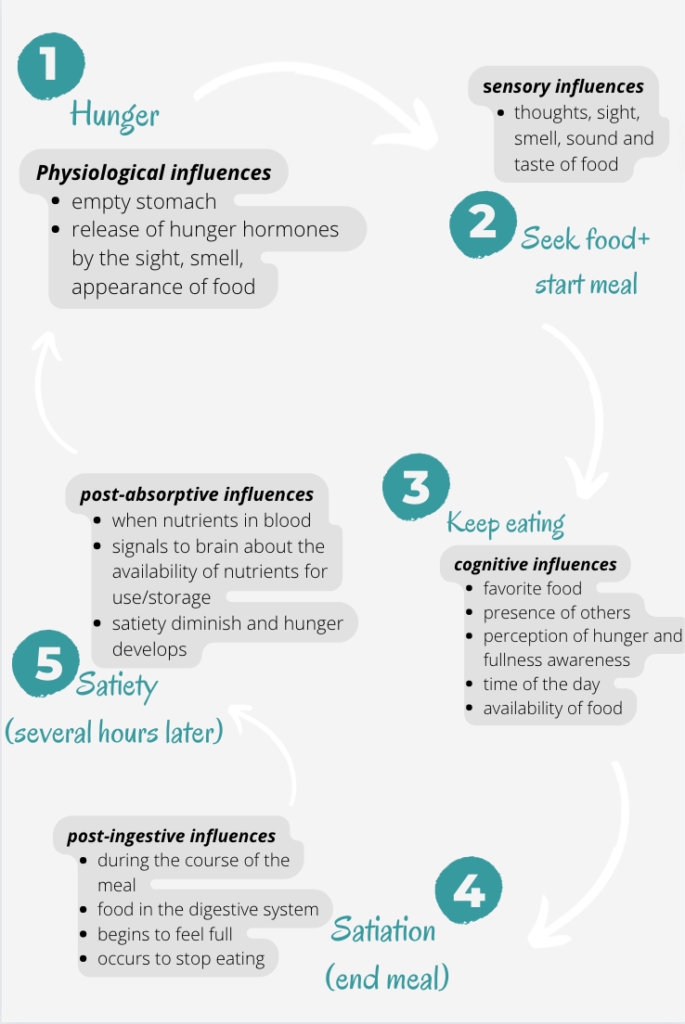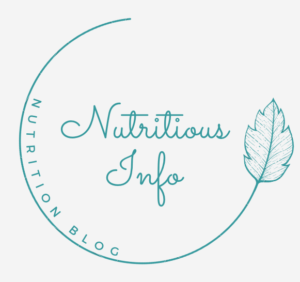
Our bodies are incredibly complex, constantly working in fascinating ways. To keep this amazing system functioning optimally, we need to fuel it correctly and respond wisely to its cues. Simply by knowing the answer to this question: Am I Hungry or just Bored? Are you eating when you are genuinely hungry and stopping when you are full? Are you able to understand, listen and respond right to all of your body’s cues?
In the ever-evolving landscape of nutrition, achieving energy balance means meeting your body’s needs without consuming too much or too little energy. This involves either calculating your calorie needs and sticking to them daily or responding appropriately to your body’s signals. Asking yourself, are you genuinely hungry? Do you really need food right now? And I believe that this way is a more sustainable and long-lasting way to stay healthy. However, this is where many people make mistakes.
Understanding Hunger Cues
Imagine you just had a full, delicious meal, and 30 minutes later, you smell something nice, and your stomach starts to growl, or you start salivating. Do you think this was caused because of hunger, when you just had your meal?
Most of the time, that DOES NOT mean you are hungry.
Your body undergoes a specific cycle when you are truly hungry. It often and normally happens, when you wake up after not eating for the whole night, 6-8 hours. Or when you feel tired, fatigued. Could be after long working hours with no food. All which considered clear signs that you are surely hungry, because obviously your stomach and bloodstream lack nutrients. Then, your stomach may growl. Even the sight, smell, or taste of food then triggers the release of pleasure hormones (endorphins), enhancing your desire for food.
However, the same triggers happen at the wrong times, or we can say, it is misinterpreted. For example, when you are bored, or thirsty.
The Cycle of Eating
As those triggers show, you’ll eat. Until you reach a satiation point when food starts entering your digestive system. By the way, it depends on what kind of food you are eating. Anyway, the stomach stretches, and hormones like cholecystokinin activate, triggering a feeling of fullness and signaling you to STOP EATING. This is followed by satiety, a state where you don’t feel the need to eat again for several hours. And again, it depends on what kind of food you ate. For instance, a meal high in protein and fiber will keep you fuller longer, while sugary snacks might provide immediate satisfaction but leave you hungry again soon after.
Here is a simplified picture of the cycle. The cycle is from “Understanding Normal and Clinical Nutrition” book

External Influences on Eating
When you start eating, various external cues can affect how much you eat. You might eat more of a favorite food, ignore fullness cues after intense exercise, eat more when stressed, or consume more in cold weather. These factors can lead you to eat beyond your body’s actual needs, making it challenging to recognize and respond appropriately to hunger and fullness signals.
Making Wise Food Choices
To avoid overeating, choose nutritious, balanced, and moderate meals. Protein is the most satiating nutrient and stays in the stomach longer. High-fiber foods and those low in energy density also help suppress hunger. Conversely, high-fat foods can stimulate appetite and have a weaker effect on satiety, making it hard to stop eating foods like French fries.
Typically, about 4 to 5 hours after a meal, the stomach is empty, nutrients enter the bloodstream, and the brain receives signals about the availability, use, and storage of food. Hunger develops again at this point.
Am I Hungry or Bored? know the difference
If you can sense and respond correctly to these signals, you have a strong connection with your body. However, stress, boredom, and other factors can make you misinterpret these signals. Eating to fuel your body, not to feed your emotions, is crucial.
Using food as a primary source of pleasure might indicate that deeper needs aren’t being met. If food is just one of many things that bring you pleasure, you’re more likely to make healthier choices and recognize true hunger.

Tips to Differentiate Hunger from Boredom
- Check the Clock: If you ate less than two hours ago, you might not be truly hungry.
- Hydrate First: Thirst can sometimes masquerade as hunger. Drink a glass of water and wait a few minutes to see if the sensation passes.
- Assess Your Emotions: Are you stressed, bored, or anxious? If emotions are driving your desire to eat, find alternative ways to cope.
- Eat Mindfully: Focus on your meal without distractions. This helps you listen to your body’s hunger and fullness signals more accurately.
- Snack Wisely: Choose high-protein or high-fiber snacks that keep you fuller longer.
- Plan Balanced Meals: Ensure your meals are balanced with protein, healthy fats, and fiber to maintain satiety.
- Find Non-Food Rewards: Engage in activities that bring you joy and fulfillment, reducing the reliance on food for pleasure.
- Monitor Your Feelings: If you feel headachy, tired, or fatigued, it’s been too long since you ate. Be mindful to eat before you reach this point to avoid overeating.
Conclusion
Am I Hungry or Bored?…. A question that can help in distinguishing between true hunger and emotional or boredom-driven eating, you can maintain a healthier relationship with food and better meet your body’s nutritional needs.

I loved as much as you will receive carried out right here. The sketch is tasteful, your authored material stylish. nonetheless, you command get bought an nervousness over that you wish be delivering the following. unwell unquestionably come more formerly again since exactly the same nearly very often inside case you shield this hike.
Pingback: How to stop snacking? - Nutritious
Pingback: Intuitive Eating for Weight Loss: Embracing Sustainable Health and Natural Balance - Nutritious nutritiousinfo
Fascinating. I do eat because I am board but I also eat because I am depressed.
Really interesting read
I like the nonfood rewards idea. Thanks!
Woow, I need to save this to read through again. A very good read. Thanks!
Understanding the difference between the two is so crucial for our whole health. Also, knowing how to fuel our bodies with nutritious foods play an important role in determining whether one is hungry or bored.
I love that infographic! So helpful!
Fantastic article. You’re right, so many people confuse the two. Thanks for sharing.
you are more than welcome<3
Wow, very thought provoking article. Am I hungry or bored? Understanding both is key. Thanks for breaking this question down like this.
I don’t think people realize how important it is to educate yourself on this topic. I love when you said “Eating to fuel your body, not to feed your emotions, is crucial.”. This was a great post
so glad that you find it great <3
Interesting article! Sometimes I ask myself this very question, lol. Thanks for sharing!
Pingback: How protein boost your metabolism? - Nutritious nutritiousinfo
Pingback: Fear of gaining weight?! - Nutritious nutritiousinfo
Pingback: How our digestive system works? - nutritious info
Pingback: Don’t count calories - nutritiousinfo
Pingback: How to stop boredom eating? - nutritiousinfo